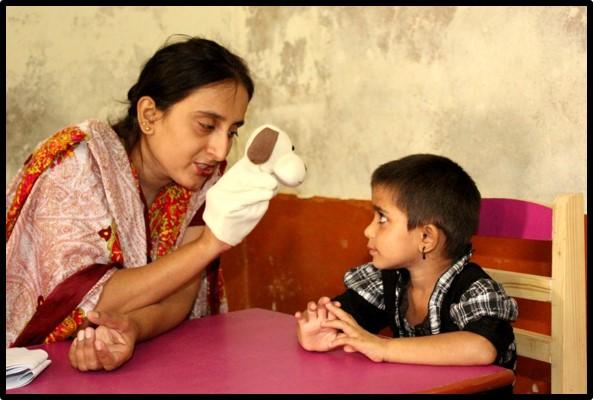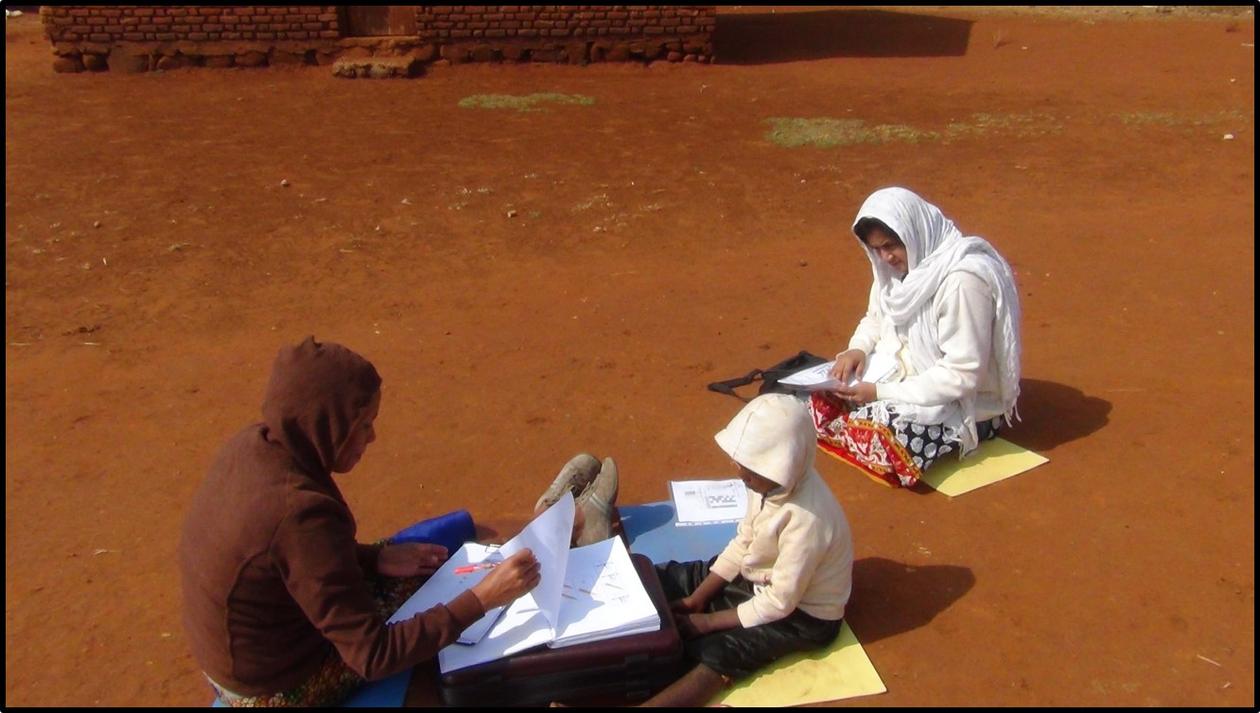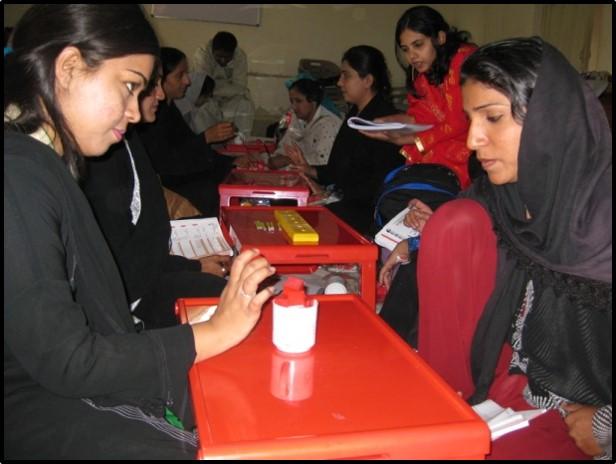Training research staff for community-based studies
Some reflections and suggestions based on experiences gleaned from work in rural Pakistan.

Hovedinnhold
Muneera A. Rasheed, a CISMAC PhD student studying at Aga Khan University, Pakistan, is the Principal Investigator of the study, “Longitudinal follow-up study of a rural Pakistani population exposed to early responsive stimulation and nutrition interventions in the first two years of life to determine effects on learning, behaviour and growth at 7-8 years old” or “Scale-8”.
Sharing best practice
While Rasheed’s study is an important follow-up to a large community-scale intervention investigating early child development (learn more), she believes that the high follow-up rate in her study – over 90% - is largely due to the training programme the study developed for its research staff, and to the fact that the staff are community-based.
She gave a presentation of this programme at the CISMAC webinar 5 September 2018. It is a valuable model of “best practice”, as many CISMAC studies involve large-scale interventions that depend on well-trained community-based research teams.
Capacity building
Scale-8 is part of a research portfolio of intervention studies into early child development, which are being undertaken in Pakistan, Rwanda and Bosnia-Herzegovina. The studies are not only aiming to promote children’s development and family psychosocial wellbeing, but also aim to raise the visibility of and understanding of early child development within local communities.
Based on the experiences of about a decade now, Rasheed believes that prioritising the training of local, community-based research staff has been critical to ensuring high follow-up rates in the study cohorts. Predominantly female, Rasheed spoke of women empowerment for her research trainees: 70 assessors and 2 supervisors in 4 countries.
Individuals have impact
The trainees were motivated by learning that each child (and each observation) has the potential to make a global impact – the results of this research can affect many thousands of children around the world.
Training takes a least 2 months. Rasheed said that in her study they had the luxury of 6 months training because it took 6 months for the study instruments to be adapted for use in the study communities. Training is also seen as an on-going process, with need for regular refreshment. Manuals were developed to accompany all the various measurement tools. These manuals were constantly referred in training and during debriefing to ensuring consistency, accuracy and reliability. In addition to daily debriefing sessions, there were regular follow-ups with supervisors and video reviews.
Rasheed underlined that feedback mechanisms are critical to successful, sustainable training – from research staff to supervisors, from supervisors to the study leaders. In addition, it was important to have support and professional development opportunities at all levels. Good networking and team-building builds good will, and results in good cohort adherence.
Pedagogical approach
In her CISMAC webinar presentation, Rasheed suggests the following training strategy:
Train in this order
- Basic child development concepts
- Basic methods concepts (e.g. adaptation, constructive feedback, peer-to-peer learning)
- Understanding of the study: Contribution to science and community
- Interview measures
- Observation measures
- Direct child/mother assessments
It takes time to build new skills. Some of the above-mentioned steps may involve several days with multiple teaching approaches: classroom training, field practice in pairs, role playing, daily debriefings and supervised practice before a trainee can be cleared by a supervisor. Trainees and supervisors refer constantly to the tool manuals to ensure consistency, accuracy and reliability.
Building knowledge communities
As time went on and the trainees and supervisors became increasingly experienced, the research leaders initiated activities to expand professional development and to build a stronger community of learning. They started encouraging team presentations and established journal clubs to consider research results and to set the project in a wider, global context.
In summary
Rasheed concluded her presentation by saying:
- Commit greater resources for capacity development for research in LMIC.
- Teach beyond assessment administration in order to maintain motivation, commitment, and sustainability of research staff.
- Well-trained staff from the community facilitates building relationships with the community.
- Moving forward, building ‘Communities of Practice’ for community-based researchers is critical.


